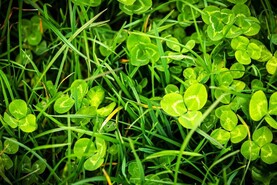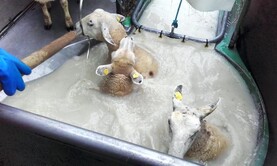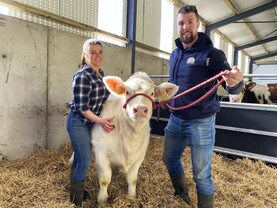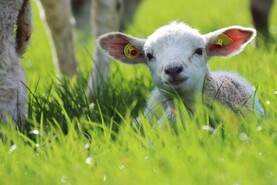The snow that fell on Sunday night has melted away in most parts, but its effect is still lingering everywhere. While the snow wasn't in any way as severe as two weeks ago, everyone could have done without it.
Cows have had to be fully rehoused on most farms, significantly adding to the workload and increasing costs.
I was speaking to a few farmers over the weekend and each one was seeing a spike in mastitis and a drop in body condition score, particularly among heifers. Where mastitis rates are high, milk samples should be taken from affected quarters to find out what is causing it.
Taking samples
It's usually either staph aureus or strep uberis mastitis. Strep uberis mastitis is picked up in the environment. A combination of wet and dirty cubicle beds is probably leading to a spike in strep mastitis at present.
Cleaning down cubicle beds twice a day and disinfecting twice a day are the only real preventative measures.
It's hard to know if liming outdoor cubicles when they are wet is worthwhile at all. But going back to first principles, it should still be beneficial. The purpose of lime is to raise the pH high enough to kill bacteria. It shouldn't matter too much if the lime turns wet or not.
Some farmers with outdoor cubicles have stopped spreading lime but are spraying beds with disinfectant instead.
Disinfectant products that contain hydrogen peroxide and peracetic acid (eg Sorgene 5) have cubicle beds listed in the label as one of the areas on which it is effective. Mix at a rate of 1:100.
On the flip side, if cubicle beds are dry and it is not raining, then lime products will help to soak up moisture and keep beds dry. Bacteria won't grow on a dry surface but good liquid disinfectants will kill all bacteria.
Preventing cross-infection
Put cows that have mastitis in a separate group and milk them last to prevent cross-infection. Wear gloves when milking and wash hands regularly, but after every cow that has mastitis.
The weather is hard on cows and most cows are on a poorer diet than normal because they are housed. As a result, cows are losing body condition score (BCS).
This needs to be managed carefully. In a normal year, cows would be holding or increasing in BCS now, in the run-up to breeding.
The most at risk cows are young cows and first calvers. Some will cope better than others. Put the cows that are getting too thin (anything less than 2.75 BCS ) on once-a-day milking, at least until cows are back out grazing full-time.
Keep them in the milking herd and feed them meal in the evenings but just don't milk them. Yes, you are sacrificing some milk now, but you will get it back later when cows are in better BCS and go back in calf earlier.
Read more:
Where are milk prices heading?
Storm leaves 19m litres milk uncollected in UK
The snow that fell on Sunday night has melted away in most parts, but its effect is still lingering everywhere. While the snow wasn't in any way as severe as two weeks ago, everyone could have done without it.
Cows have had to be fully rehoused on most farms, significantly adding to the workload and increasing costs.
I was speaking to a few farmers over the weekend and each one was seeing a spike in mastitis and a drop in body condition score, particularly among heifers. Where mastitis rates are high, milk samples should be taken from affected quarters to find out what is causing it.
Taking samples
It's usually either staph aureus or strep uberis mastitis. Strep uberis mastitis is picked up in the environment. A combination of wet and dirty cubicle beds is probably leading to a spike in strep mastitis at present.
Cleaning down cubicle beds twice a day and disinfecting twice a day are the only real preventative measures.
It's hard to know if liming outdoor cubicles when they are wet is worthwhile at all. But going back to first principles, it should still be beneficial. The purpose of lime is to raise the pH high enough to kill bacteria. It shouldn't matter too much if the lime turns wet or not.
Some farmers with outdoor cubicles have stopped spreading lime but are spraying beds with disinfectant instead.
Disinfectant products that contain hydrogen peroxide and peracetic acid (eg Sorgene 5) have cubicle beds listed in the label as one of the areas on which it is effective. Mix at a rate of 1:100.
On the flip side, if cubicle beds are dry and it is not raining, then lime products will help to soak up moisture and keep beds dry. Bacteria won't grow on a dry surface but good liquid disinfectants will kill all bacteria.
Preventing cross-infection
Put cows that have mastitis in a separate group and milk them last to prevent cross-infection. Wear gloves when milking and wash hands regularly, but after every cow that has mastitis.
The weather is hard on cows and most cows are on a poorer diet than normal because they are housed. As a result, cows are losing body condition score (BCS).
This needs to be managed carefully. In a normal year, cows would be holding or increasing in BCS now, in the run-up to breeding.
The most at risk cows are young cows and first calvers. Some will cope better than others. Put the cows that are getting too thin (anything less than 2.75 BCS ) on once-a-day milking, at least until cows are back out grazing full-time.
Keep them in the milking herd and feed them meal in the evenings but just don't milk them. Yes, you are sacrificing some milk now, but you will get it back later when cows are in better BCS and go back in calf earlier.
Read more:
Where are milk prices heading?
Storm leaves 19m litres milk uncollected in UK






 This is a subscriber-only article
This is a subscriber-only article










SHARING OPTIONS: